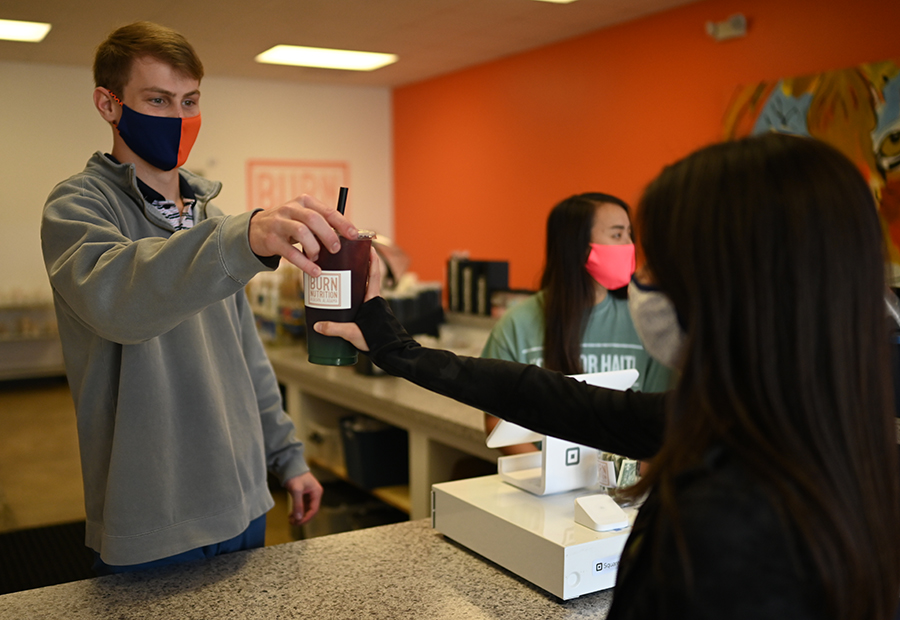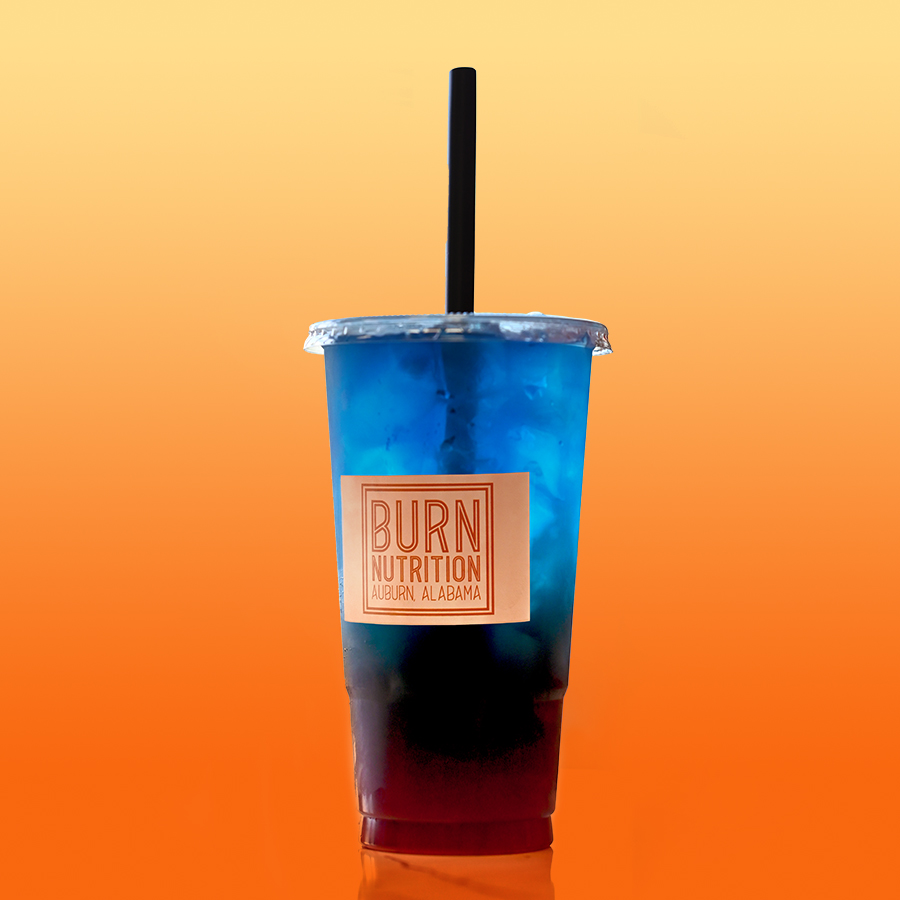“‘What has been the biggest thing you have learned?’ I said that it was the ability to adapt to the changing circumstances.”

Brock Murphy was enjoying spring break on the Gulf Coast, briefly leaving the headaches of starting a new business behind. Burn Nutrition opened Feb. 1, and the owner/operator of Auburn’s latest health café needed some time to unwind.
Then COVID-19 changed everything.
“It was tough,” Murphy recalled. “I had just opened a business. I’m in charge of making sure this business is successful. I was basically going to have to redefine our business and find a way to make us successful. The week after spring break was one of the hardest weeks of my life.”
Brock Murphy is 20 years old and a junior in the Department of Supply Chain Management.
Since opening a shop that specializes in health-alternative, multicolored, flavored teas that carry names such as Captain America, Miami Vice and Cotton Candy—and a variety of vitamin-packed protein smoothies—Murphy has utilized lessons learned at Harbert College and applied them to his business.
With shipping-related problems for popular flavor packets and the onset of the coronavirus, Murphy had to brainstorm new ways to attract customers—and keep the ones who line up outside the store on Opelika Road in Auburn.
“In one of my first supply chain classes at Auburn, I learned that at the end of the day, supply chain revolves around customer satisfaction,” he said. “What we focus on at Burn is that initial two or three minutes so that our customers have the best satisfaction experience possible when they walk in.”
COVID-19 restrictions meant customers could no longer walk through Burn’s doors.
“We were watching our new business fall apart,” he said. Then Murphy had an idea. He boosted Burn’s online and social media presence with a smartphone app, reaching out to customers with a promotional “loaded tea of the day” option. Those who ordered it got a chance to win complimentary offerings.
Employees who couldn’t get their normal hours were needed again. Inventory sitting in a back room was utilized. Curbside pickup and social media promotions saved the day for Burn Nutrition.
“People ask me all the time, ‘What has been the biggest thing you have learned?’ I said that it was the ability to adapt to the changing circumstances,” Murphy noted.
Satisfying regular customers is challenging when their favorite products are unavailable. For two weeks, flavoring packets for nearly half of Burn’s most popular loaded teas had not shipped. There were disruptions in the supply chain.
Murphy could not have forecast the disruptions, which are now resolved, but the process—and meeting customer demand—made him appreciate a supply chain management discipline: forecasting demand.
“We’re still trying to figure it out. We have only one place that we order from, so there are not really any other avenues. It’s hard because our product is expensive. If I go out and order X amount of dollars of product and then everybody decides to no longer drink the teas or shakes, then my numbers drop and I’m sitting on a ton of inventory that has a shelf life of three months.
“What I’ve been learning in supply chain is trying to figure out the demand side of things. If you don’t do it correctly, you’ll lose money. You have to be on track to make a profit. The only way to do that is accurately forecast the demand.”
Murphy shares ownership of the business with two others, and said his role is built on “sweat equity.”
“My goal is to one day have a company with a huge online presence that revolves strictly around supply chain,” he said. “I chose supply chain management because it’s a major that really revolves around the customer experience and getting a product to the customer in the quickest amount of time. That’s what’s going to make me successful in the long run.”

